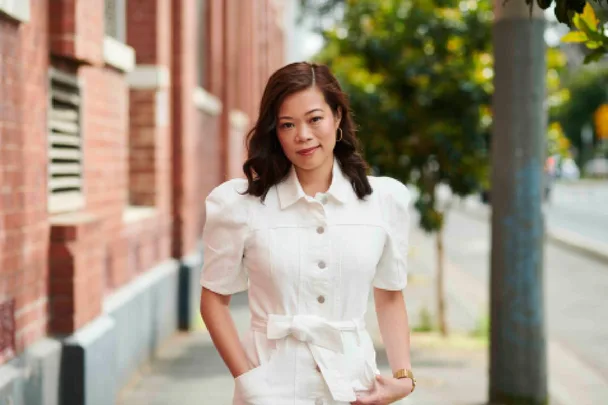Dr. Hui Fern Koay always knew she wanted to work in health, but forging an entire game-changing career in science wasn’t something she thought was possible. Then, she did exactly that.
Dr. Fern moved from her home country Malaysia to Melbourne where she studied biomedicine before undertaking her PhD in immunology. Now, she’s a research fellow at the Peter Doherty Institute in Victoria where she studies cell-based therapy. Specifically, she looks at T cells—the key agents in our immune response (and the trending term of the pandemic).

The thing about T cells, however, is that we haven’t come to realise their full potential. We know that they can protect us from illness—but they can also turn on us, which is how autoimmune illnesses like cancer can occur. Dr. Fern is endeavouring to flip this around by utilising powerful properties from T cells to treat cancer.
“I had a couple of relatives, including my grandfather who died of cancer. You quickly realised that the general treatment that they they offer you is basically chemotherapy and radiotherapy. We all accept that, and that’s fine, and sometimes it works—it’s debilitating by works,” she tells marie claire Australia.
When a novel type of T cell which could recognise the same patterns in every single person was discovered, a potential alternative posed itself to Dr. Fern.
“[The novel T cells] can augment the immune response in those who are unable to recover as quickly, or they can suppress the immune response where needed. We believe that these unique cells can unlock so many possibilities to combat a wide range of diseases,” she explains.
“We’re still in a fundamental research phase,” she continues. “We don’t understand everything about them yet, but watch this space.”
There’s something reassuring in that, particularly given the calibre of Dr. Fern and her peers’ experience. The impact of this research isn’t lost on her.
“Even when you think, ‘We can fight this,’ I think I speak for everyone who has still had that sinking feeling when a relative is diagnosed.”
“If there is [another alternative] that gives someone a small glimmer of hope, [it tells them] that there actually is a ‘magic’ treatment.”
Along with contributing to a potentially-game changing treatment, Dr. Fern is also using her achievements as a springboard to help other woman to join her field. She was recently named a L’Oréal-UNESCO For Women in Science fellow, a program which aims to support and increase the number of women working in science. As it stands, only 28 per cent of researchers are women, and less than 20 per cent of those make up the most senior leadership positions within scientific research facilities.
“I want to advocate and I want to champion this because I am in the minority in the room most of the time,” she explains.
“We’re aware that we may not be taken as seriously just because of the way we look and sound—and I think this is a thing of every industry, but in science you regularly hear a woman start a sentence or a question by saying apologising” she explains.
“Men don’t do that. I think a little bit of self-awareness and self-adjustment might go a long way there.
“We just have to speak out, we need some systemic change. But it’s happening—people’s behaviours are changing. I have a huge support network here, it’s like almost like a girl gang, so I love that.”
A prime example of women using their expertise to bring others up, Dr. Fern does a lot for the science industry beyond finding a breakthrough treatment alternative. We have a feeling this isn’t the last we’ll see of her—watch this space.










